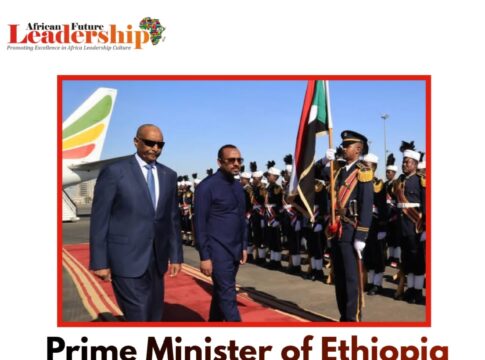The President, Major General Muhammadu Buhari (retired), Wednesday in Senegal, accepted a grant of $538.05 from the African Development Bank, the Islamic Development Bank and the International Fund for Agricultural Development for the first phase of the Special Agro-Industrial Processing Zones for Nigeria programme.
It is according to him that he asked his counterparts to allocate at least 10% of their country’s budget for agriculture as agreed in the Malabo declaration of African leaders and governments.
‘I am pleased with the partnership approach used for Nigeria by the multilateral financing institutions, with the African Development Bank providing $210m, the Islamic Development Bank and the International Fund for Agricultural Development providing $310m, and the Government of Nigeria providing $18.05m,” Buhari said in his goodwill message to the Feed Africa Summit of Heads of State and Government in Dakar.
Special Adviser to the President on Media and Publicity, Femi Adesina, revealed this in a statement he signed on Wednesday titled ‘How Africa can feed itself, produce surplus for export, by President Buhari.’
Applauding the efforts of the African Development Bank to launch SAPZ, Buhari said ‘‘The Special Agro-Industrial Processing Zones for Nigeria, which is in the first phase, will cover seven States in the Federation.
‘‘These very innovative public-private partnership models will help us to transform the agriculture sector much faster and use it to generate wealth.
‘‘They will also allow our countries to develop integrated infrastructure around our agricultural processes and add value to the production of crops, livestock, and fisheries.’’
READ MORE: First Delegate To Int’l Youth Summit, Nigerian Students In Europe Celebrate
He described the SAPZs as game changers for the structural transformation of the agricultural sector.
Therefore, he urged his counterparts to give special attention to the zones as member states develop their Food and Agriculture Delivery Compacts.
Buhari also cited the rising inflation globally and the effects of the Russia-Ukraine conflict that have driven up food prices, especially for basic staples such as wheat and maize.
He enumerated measures that African leaders must take to change the state of things.
‘‘We must ensure that we feed ourselves today, tomorrow, and well into the future. The starting point is to raise agricultural productivity. This requires the access of farmers to quality farm inputs, especially improved seeds, and fertilizers and mechanization.
‘‘To succeed, we must strongly support farmers. There is no doubt that we need to subsidize our farmers, but we must do so in ways that are transparent, remove rent seeking behavior and effectively deliver support to farmers.
‘‘The share of budget allocation to agriculture should be increased across Africa, especially for investments in critical public goods, such as research and development, infrastructure, especially roads, irrigation, and energy.
‘‘As leaders, let us decisively ensure that we meet the 10 per cent allocation of our budgets to agriculture as agreed in the Malabo Declaration of the African Heads of State and Government. We must reduce the rate of rural to urban migration through the development of rural areas,’’ Buhari advised.
The President also noted that the future of agriculture in Africa would depend on getting more youth into agriculture, which means making agriculture attractive for them.
This means enabling easy access to land, finance, technologies, information, and markets, he said.
Therefore, he requested that the Food and Agriculture Delivery Compacts arising from the Summit must address ways to improve empowerment of the youth and women in agriculture.
Buhari also called for affordable financing to support smallholder and commercial farmers, emphasizing the need for dedicated financing windows from the central banks.
He said ‘‘Access to affordable finance is critical for the success of efforts to support smallholder farmers and commercial farmers. Commercial banks do not lend much to agriculture due to the perception of high risks.
‘‘Generally, less than 3 per cent of total financing by commercial banks in Africa go into agriculture.
“We must therefore reduce the risks of lending faced by commercial banks. But we must go beyond commercial lending. Where possible and countries can afford to, the central banks can also dedicate significant resources to complement lending from commercial banks.”
He commended the President of the African Development Bank, Dr. Akinwunmi Adesina, for the vision to drive the Summit, together with the African Union Commission.




